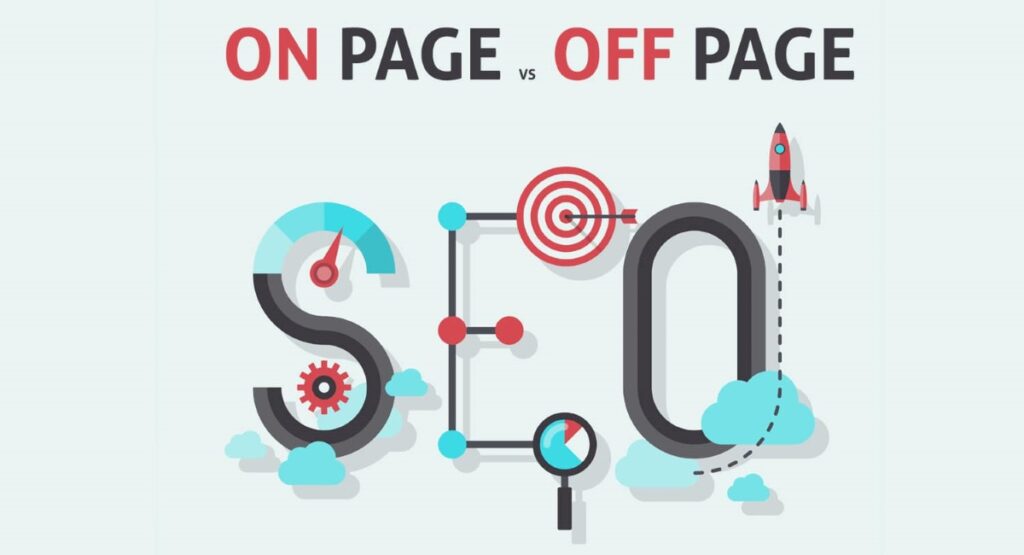
SEO, or ‘search engine optimization is playing an increasingly vital role in the success of many small businesses, due to the massive increase in online consumer spending. Small businesses need to be visible to their online customers, to capture their attention (and their dollars when they hopefully buy something online). Search engine optimization is the set of specific techniques that are used to optimize a website for the various search engines so that the website is deemed the best fit for the first page of the search engine results. The general idea is that the higher the search engine rankings, the more likely it is that a customer will click on the site.
These search engine optimization techniques can be widely categorized as either ‘on-page optimization (focussing on website content, keywords, site design, meta tags, etc.) or ‘off-page optimization (focussing on backlinks and Google PageRank).
On-Page Techniques
On-page techniques are the easiest to implement as they are confined to the actual website itself. These techniques focus on the structure and layout of the various components of the website and the content that it contains. The following are some of the major on-page techniques that are used to help websites achieve high rankings.
High Quality, Relevant Content with the Right Keywords
The search engines simply love content that is engaging and informative and provides users with up-to-date data, especially if this data is stats and figures in the form of an attractive graph or another type of informatics. The content should also include relevant keywords that are not overly used (which would indicate intentional spamming). The content should flow naturally and not seem too staged. The Google algorithms are getting increasingly sophisticated and can detect excessive usage of keywords. Duplication of content is also frowned upon by Google, so content should be original wherever possible to avoid accusations of plagiarism and subsequent potential deindexing.
Intelligent Content Titles
Search engines such as Google assign high importance to web content titles and subtitles, particularly those which are used with HTML heading tags. It is highly recommended that web content producers include the main keywords in the titles and subtitles to give the web page the best possible chance of claiming a high page ranking. Aside from the ranking and assisting in SEO, the logical placement of titles and subtitles also makes the content easier to read.
Meta Tags
The use of Meta tags is often ignored by web designers, however, intelligent use of them in SEO can often boost a web page’s ranking. Just writing a short but informative description for the description tag and a similarly matching title for the title tag can lead to some dramatic ranking improvements with little effort. The keyword tag, however, should be used carefully as excessive use can lead to a drop in rankings due to perceived spamming.
URLs and Images
The use of keywords within the URL of the website itself is highly recommended as the search engine results will show websites that have searched for keywords in their URLs. Similarly, images should also be given unique descriptions which should also include the relevant keywords.
Off-Page Techniques
Like on-page SEO techniques, off-page SEO techniques also assist websites to attain higher rankings and therefore attract more visitors. Off-page SEO techniques focus on building a website’s standing on the Internet by making it appear to be a credible, trustworthy, and rich source of information on a particular topic. The way search engines decide this is by analyzing the amount and quality of backlinks from other websites pointing back to the website. The higher the number and quality of backlinks, the higher the website will be ranked by the search engines. Here are two of the most well-known off-page SEO techniques that optimization professionals use to increase a website’s ranking.
Link-building Strategies
Some of the more common ways to generate backlinks to a website are:
- Commenting on other blog posts along with a link back to your website;
- Sharing videos on YouTube;
- Sharing pictures on Pinterest and Flickr;
- Posting your website link on social media accounts;
- Issuing press releases;
Submitting articles on article directories, along with a description of your website and a link back.
Avoid paid links at all costs, as Google is always on the lookout for so-called ‘link networks’ and is always shutting them down. Just focus on getting quality links back to your site from other relevant sites that are in similar niches as your website.
Relevant Anchor Text
When creating a link back, you will also need to think about the anchor text you are using to build that link. Try to include keywords that are relevant in some way to your website. Avoid words that don’t make any sense as this will only confuse the search engines and you’ll end up with poor rankings.
